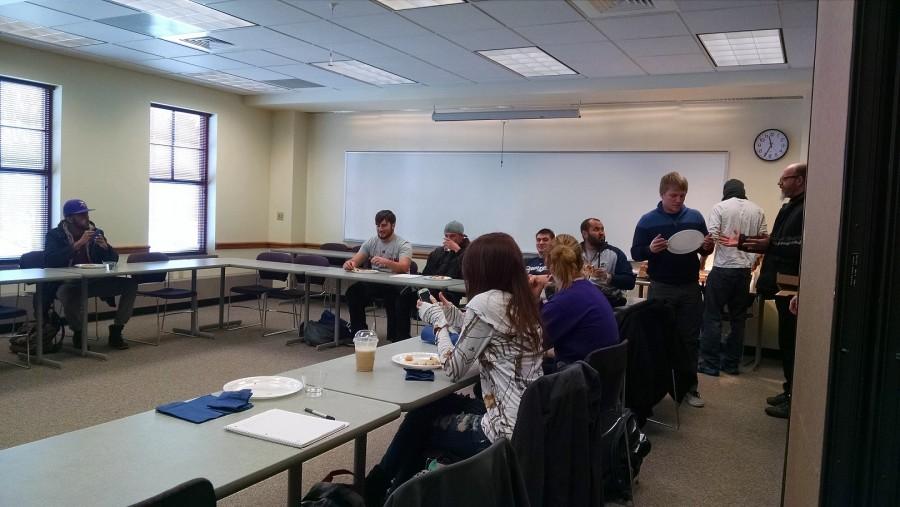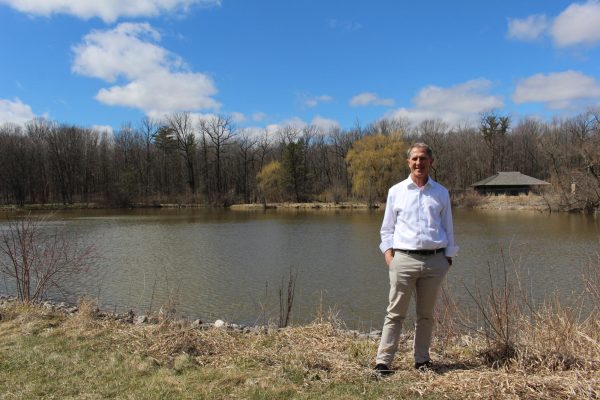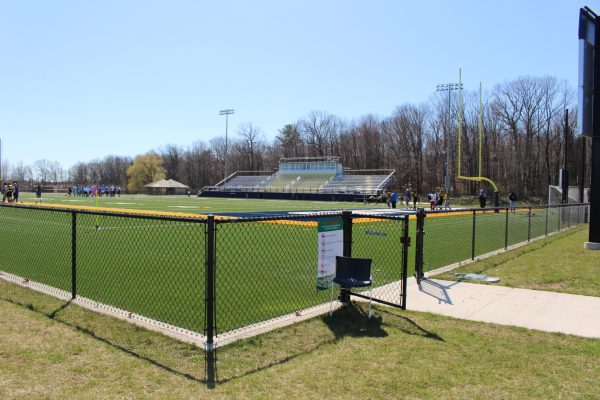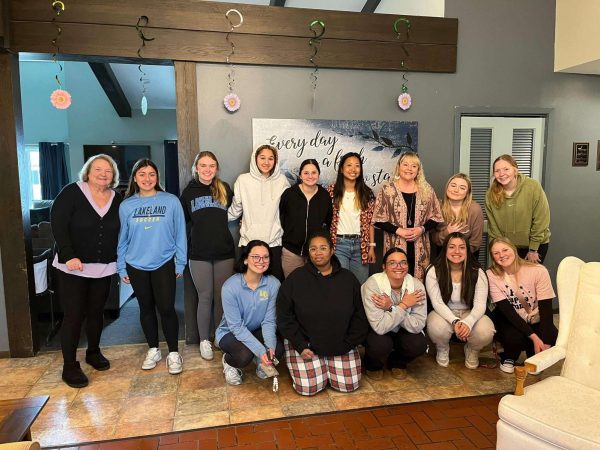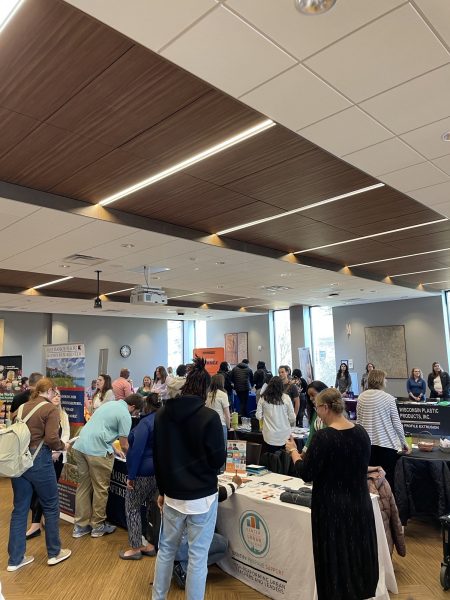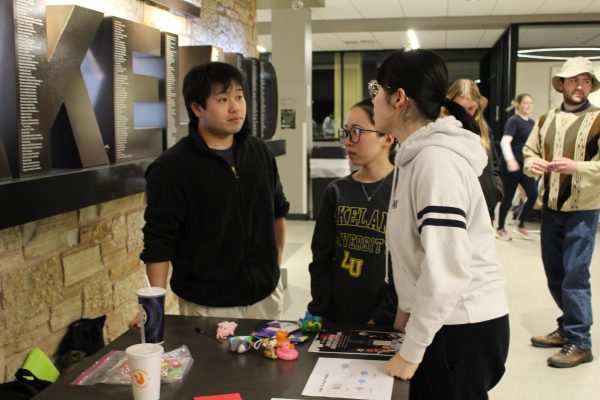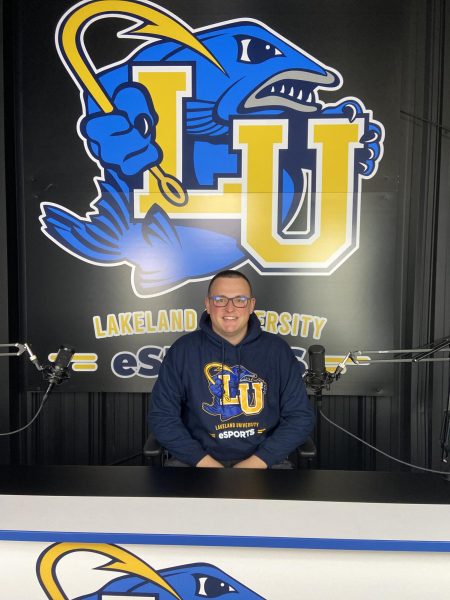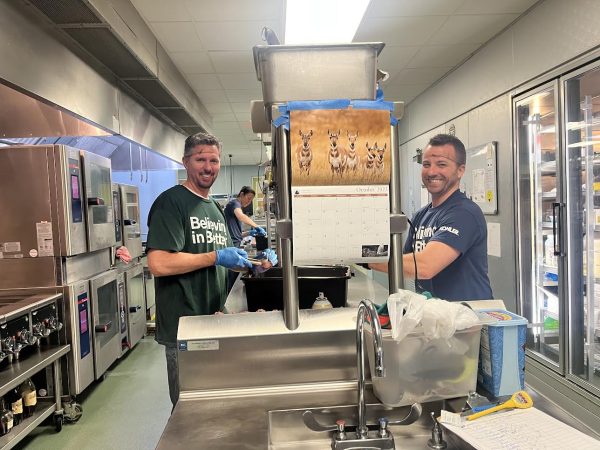Transition tips given at Lunch & Learn
March 2, 2016
Hosted by Student Success and Engagement Coaches Whitney Diedrich and Corey Roberson, the latest AT&T Lunch & Learn was held on Tuesday, March 1 and focused on how leadership roles within an organization can be transitioned to the next person as seamlessly as possible.
When a new person is going to be stepping into a leadership role, when a current leader is leaving or stepping down, it is in the best interest of that organization to “help that person out” as much as possible, said Roberson.
In such cases of leadership transitions, officers within the organization should translate the necessary information to the new leader by doing things like sharing the organization’s constitution and keeping an updated membership roster.
This roster should be made available to the Success Coaches, advisors and all appropriate individuals. “Keeping us informed” with this list “will be beneficial” for an organization, said Diedrich.
The presentation also reviewed resources for student organizations, including the Success Coaches, Margaret Teske, central reservation and events coordinator, for room reservations, Caroline Korhonen, manager of catering, for food service requests, and Pete Barth, manager of communications, for getting an event on the master calendar on Lakeland Today.
These types of contacts or businesses previously dealt with are all information that should be shared when leadership changes so that the organization can continue to run smoothly.
If an organization is looking to bring in someone from outside the Lakeland community for an event, for which a contract is needed, Roberson said, “anytime you’re dealing with a contract, get it to a Success Coach” so it can be overseen in the right way.
The presentation also went over how to obtain funds for an organization.
“Every student organization has the opportunity to petition” for funds from “the Student Foundation Board,” said Diedrich.
[Click here to learn more about getting money from the Student Foundation Board.]
It was further stated that money from the board can be obtained in three ways: as a loan, in which the organization must pay the money back; as a grant, in which the organization receives the money for which they asked and do not have to repay; and as a reimbursement, in which an organization can be payed after the fact for an event for which they already paid.
Rick Dodgson, associate professor of history, who happened to be in attendance, asked, “What’s the criteria for the decision” regarding funding acceptance.
Diedrich explained that approval depended on the time in which the event is to take place relative to submitting the request, in addition to other qualifiers (see above link). She also added that, while she’d prefer the paperwork requests are submitted a week in advance of a board meeting, submitting a request 48 hours prior to the meeting is the ideal limit for proper review.
Getting back to the transition of leadership, the communication of traditions, events, programs, etc. within an organization is also a key factor to keep in mind during these transitionary periods.
Another resource for organization leadership is the CEO meetings, which are a “platform for you as presidents to communicate with other presidents” of organizations, said Diedrich.
These meetings offer the benefit of seeing how other organizations work and what kinds of things they are doing or find helpful, which in turn can be helpful for others in leadership positions.
The CEO meetings take place the first Thursday of every month at 11:30 a.m. on the fourth floor of W. A. Krueger Hall (WAK).
Some final words of advice for organizations that are facing the leadership transition included keeping all information in a binder for easy organization and transferring of necessary materials.
Roberson added that keeping track of goals made and met is important for tracking an organizations progress and future goals.
Finally, touching on the importance of having or transferring a constitution, Diedrich said, it “will help your organization continue to run after you’re gone,” which is the goal in a seamless transition.
For more information about student organizations or the transitioning of leadership, contact a Student Success and Engagement Coach or the Division of Student Affairs, at [email protected].
Students can contact one of the resource personnel previously listed at the following addresses:
Teske can be reached at [email protected]; Korhonen can be reached at [email protected]; Barth can be reached at [email protected].
The next AT&T Lunch & Learn event will be on Friday, March 18 at 12:15 p.m. in Laun 110 and will focus on strategies for interviews.

